
Domestic workers have always formed a significant group of the Brazilian workforce. According to the National Household Sample Survey (PNAD) conducted by the Brazilian Institute of Geography and Statistics (IBGE) in 2020, there are 4.5 million domestic workers, 12.8% of which are aged 14 to 29. Women represent more than 92% of the people engaged in domestic work, of which more than 65% (3 million) are black women. The typical domestic worker is a young unschooled woman originating from the countryside or an impoverished urban area. Working hard and long hours from a young age onwards, earning very little money in return, these young women all too often remain unschooled and unable to escape the tangles of unregulated domestic work. Given this precarious situation, it is no surprise that domestic workers have been a focal point for the Brazilian YCW (JOC Brasileira) ever since its foundation. On the occasion of the International Day of Domestic Workers, KADOC lets the IYCW archives and the Brazilian YCW speak about the issue of domestic work in Brazil.
This is possible because the Brazilian YCW was eager to answer some questions for this project and because of the richness of the IYCW archives. These reveal how the International Secretariat spent much time getting acquainted with all national movements. All correspondence with national movements was conserved, as well as reports, publications and other documentation that was sent to Brussels. In this way, the IYCW attempted to keep in touch with the reality and situations faced by national movements in their respective countries. Awareness about the plight of young workers was a first step towards action to improve it. The archive section concerning the Brazilian YCW is the most voluminous concerning South American countries, covering more than 1.5 meters in length. It reflects the long history of the Brazilian YCW and its contacts with the IYCW from 1946 to 2004, and contains a variety of documents ranging from reports of regional YCW sections to preparatory notes of the Brazilian delegation to the International Councils. Among other things, the archives show how the YCW struggled to get going in Brazil.
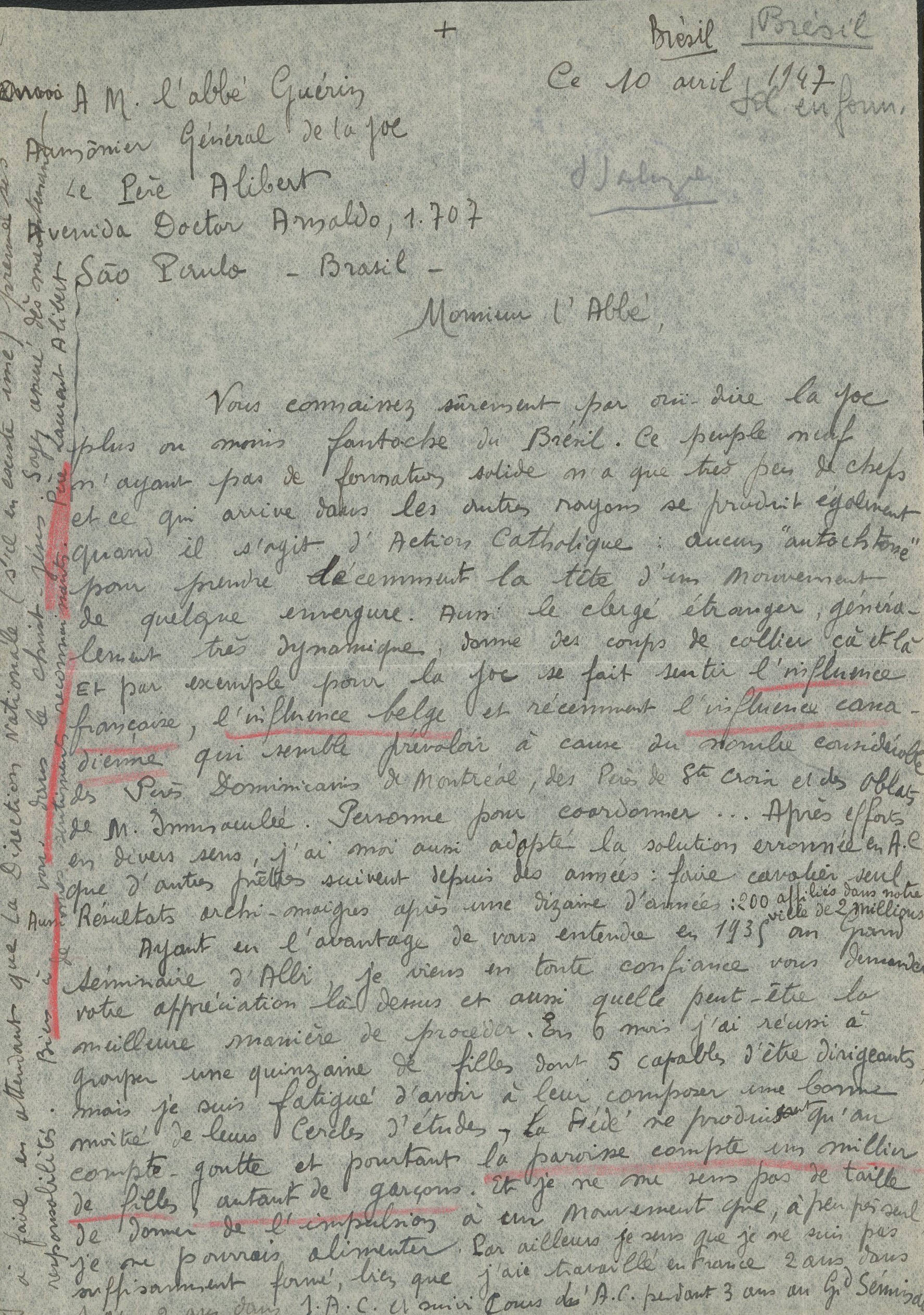 Father Alibert’s emotional letter to abbé Guérin, the International Chaplain of the IYCW
Father Alibert’s emotional letter to abbé Guérin, the International Chaplain of the IYCW
Although the Brazilian YCW was founded in 1935, a letter from Father Alibert to the IYCW chaplain Abbé Guerin shows how enthusiasm for the YCW remained low up until the later part of the 1940’s. Guérin complained that not many young workers found their way to the newly founded movement, and among the few who did it was difficult to find suitable leaders since education in Brazil was generally poor. Also, the Brazilian Church authorities did not know how to respond to this new movement, which meant that the burden of shouldering the Brazilian YCW remained with the European clergy. Father Alibert was understandably getting desperate. In his six months in São Paulo he had only managed to gather fifteen girls in a parish that counted over one million. It is a touching letter, for these difficulties made Father Alibert doubt his capacities and the training he had received in France. Similar issues were brought up in a letter from a Brazilian Bishop sent to Patrick Keagan: the Brazilian clergy was not used to working class movements striving for social improvement and the fledgling Brazilian YCW desperately needed a spark. In the expectation that his presence would instigate enthusiasm among the clergy, Canon Cardijn was invited to the national study week in 1948. The attendance of Cardijn would be a ‘sure starting point’ for the YCW in Brazil.
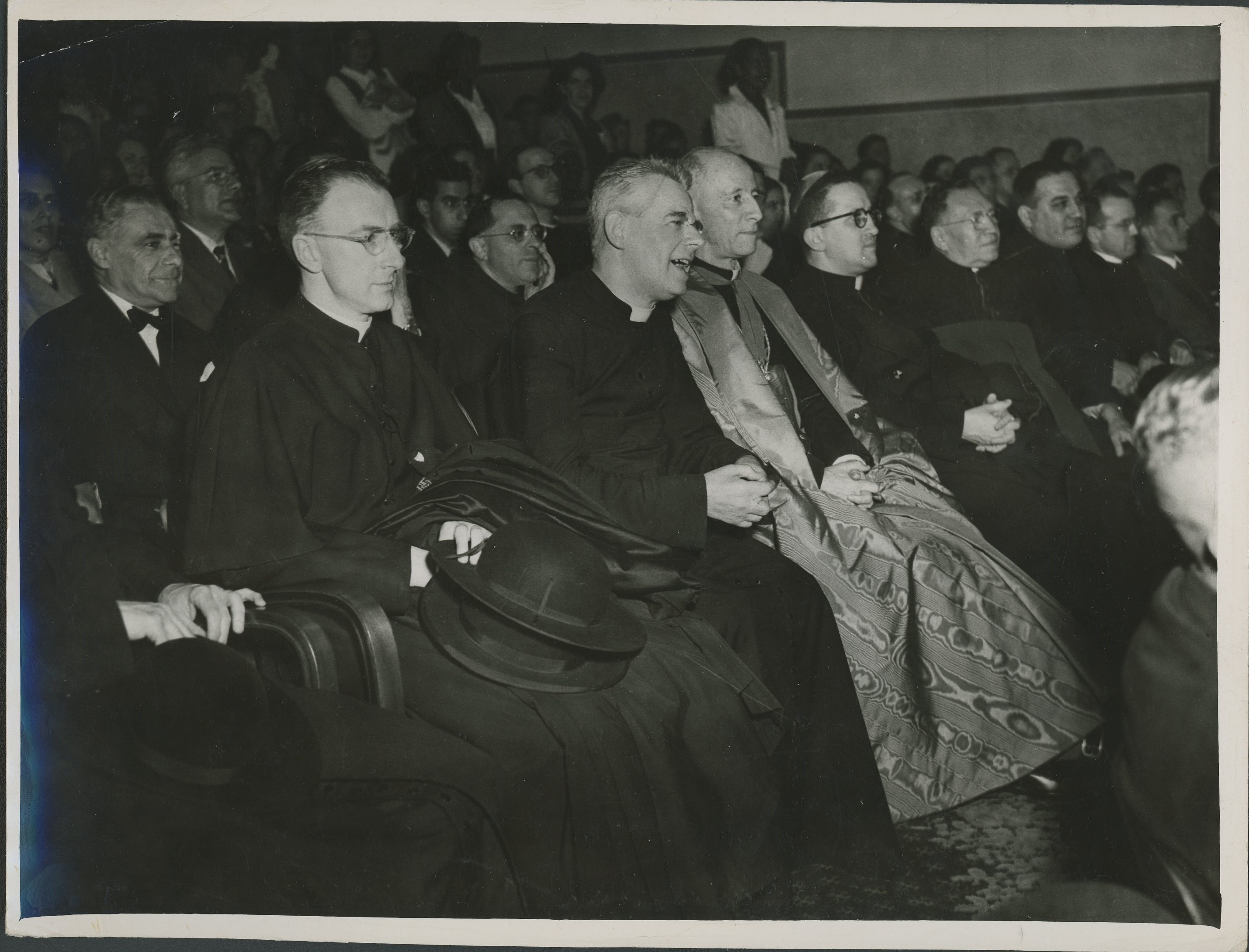 Cardijn at the national study week in 1948. On his right is Father Melanson, the Canadian founder of the JOC Brasileira
Cardijn at the national study week in 1948. On his right is Father Melanson, the Canadian founder of the JOC Brasileira
Although the Brazilian YCW had problems establishing itself, it did not take long before it set its sights on the issue of domestic workers. Here, especially the JOC-F (female YCW) showed itself very active. A letter from Denise Verschueren, a Flemish YCW member who led a girls section in Rio de Janeiro, offers a gripping account of the situation of domestic workers. In Rio alone, there were more than 150,000 and rich families who often had at least two in service. Most of these were plucked from the countryside to work as household personnel, some as young as eight years old. Their living conditions were appalling, for they had no room for themselves in the house of their patron. They were also completely excluded from the family, not allowed to dine with the family, and forced to stay awake until every family member was asleep. Often, they were not paid enough to travel back to their own families once a year. They also lagged behind in education. Only if lucky did their patron allow them to attend evening school but this did little to prevent most girls from remaining illiterate.
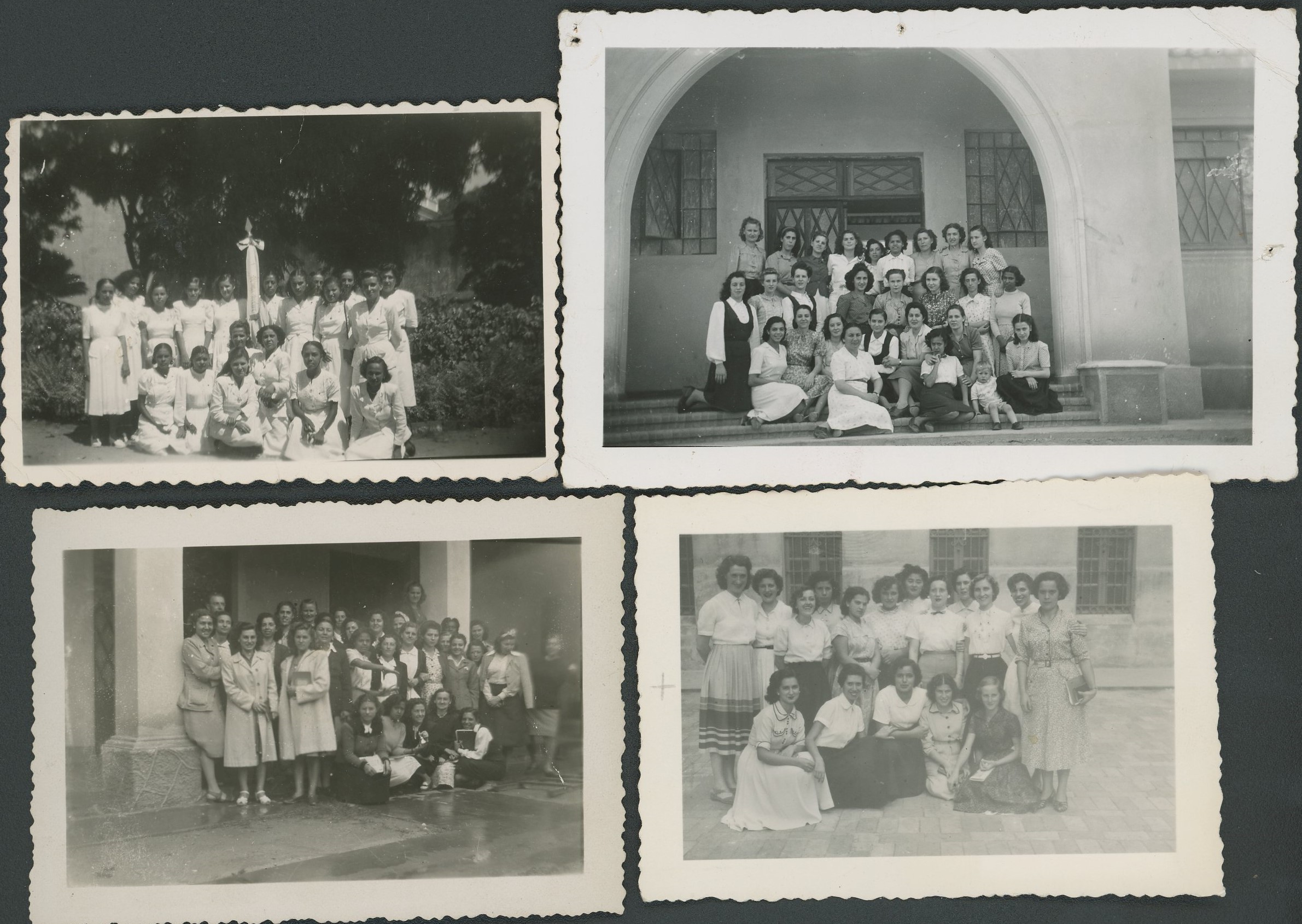 Photo’s of the local JOC-F sections of Pernambuco and São Paulo between 1946 and 1954. On the bottom right hand photo you can see Denise Verschueren with one of her groups
Photo’s of the local JOC-F sections of Pernambuco and São Paulo between 1946 and 1954. On the bottom right hand photo you can see Denise Verschueren with one of her groups
Moved by this horrible situation, Denise and her small JOC-F section attempted to improve the situation by striving for a minimum of spare time for domestic workers and organizing a camp for female household personnel during carnival. Notwithstanding their best efforts, the JOC-F still faced an issue that the Brazilian YCW had been confronted with since its establishment. The largest JOC-F group in Rio counted only 40 girls for a total of 15,000 young female domestic workers in the parish, which made it hard to achieve change. Still, Denise remained optimistic: ‘We work, we believe, and are sure of victory, if we have much patience and confidence.’
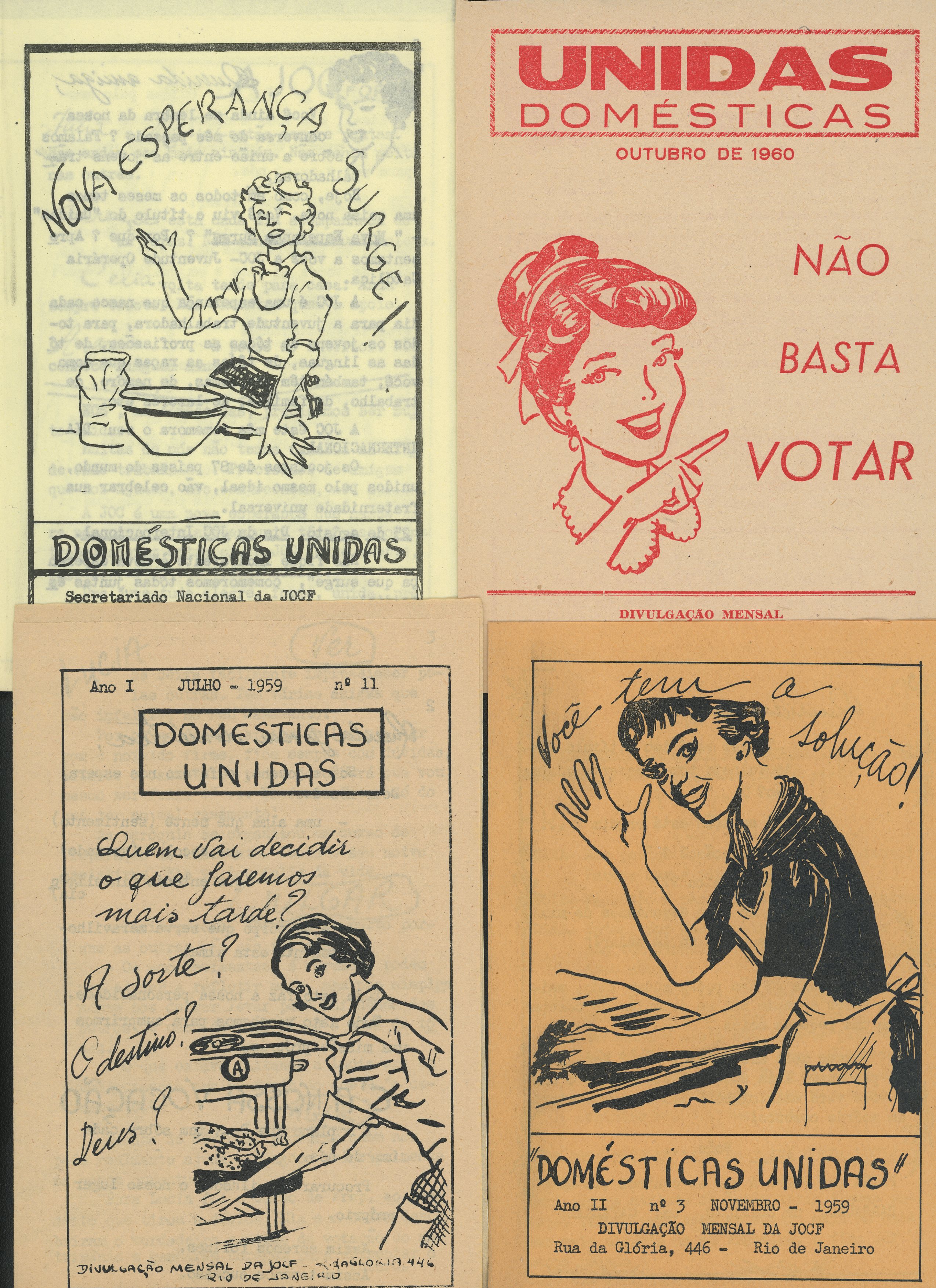 Domesticas Unidas made domésticas aware of the injustice they were suffering. By 1961, over 6000 domestic copies were distributed monthly
Domesticas Unidas made domésticas aware of the injustice they were suffering. By 1961, over 6000 domestic copies were distributed monthly
Luckily, Denise Verschueren and the JOC-F in Rio were not alone in their struggle. In 1958, the periodical Domésticas Unidas was launched by the national secretariat of the JOC-F. It was specifically aimed at informing female domestic workers about the injustice involved in their work and encouraging them to take matters into their own hands. The most important message was that their situation could improve, and that they themselves could achieve this. Slogans such as ‘Não basta votar’ (Voting is not enough) on the occasion of the 1960 presidential elections certainly made their mark and by 1961, Domésticas Unidas was printed over 6,000 times monthly. Changing the practice of domestic work, however, was not the only goal. Knowing well enough that it would not disappear overnight, the JOC-F also wanted to improve life for domestic workers by providing advice on how to perform their tasks. On the occasion of the 1959 training session for domestic workers for example, the JOC-F distributed a manual for household tasks such as washing and ironing. Strange perhaps from a 21st century perspective, but without doubt a useful weapon in the struggle for social improvement.
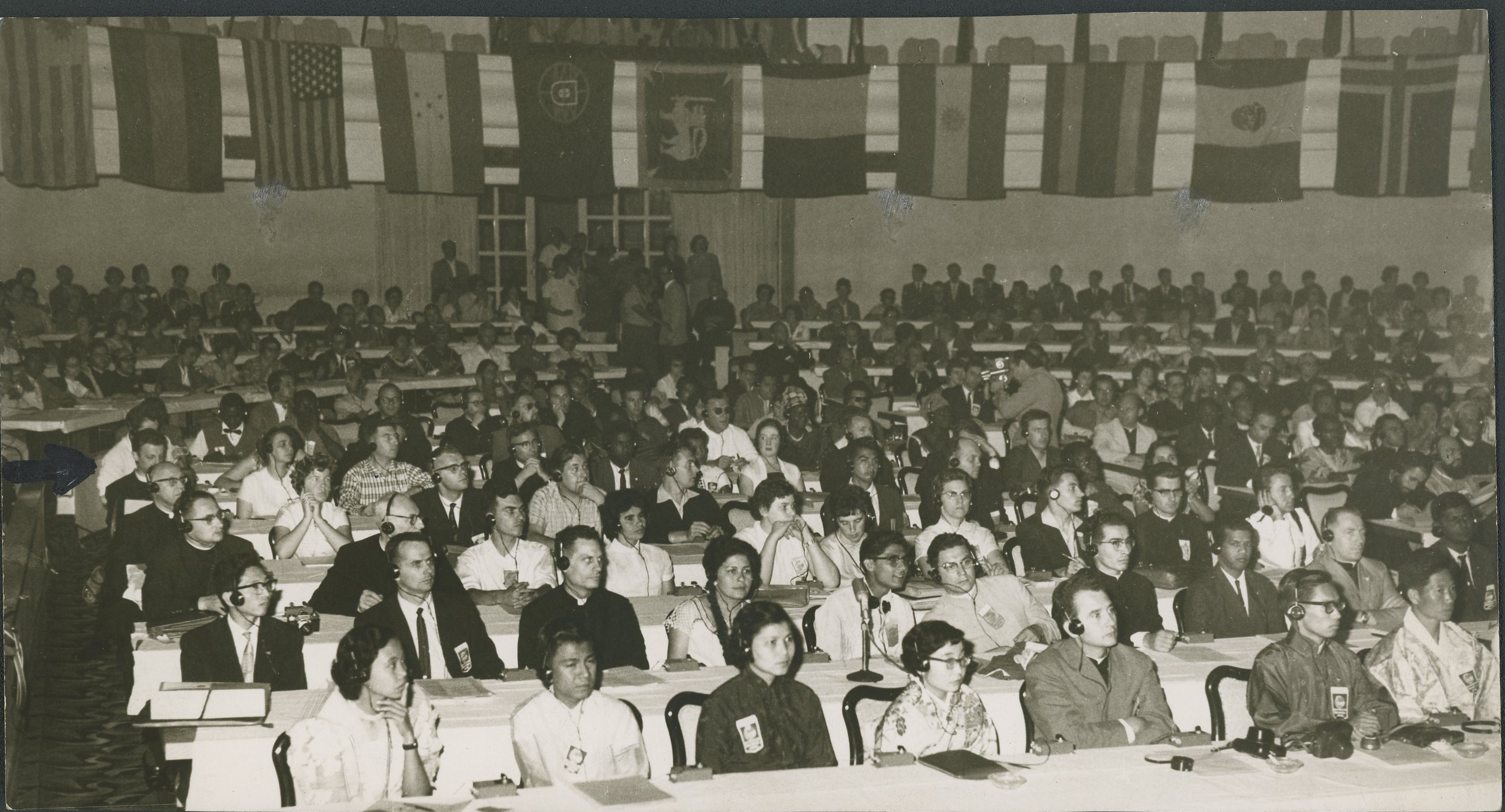 The second International Council was held in Petropolis, near Rio de Janeiro. It was a moment of recognition for JOC Brasileira, and the hosts used it to put the issue of domestic workers on the agenda
The second International Council was held in Petropolis, near Rio de Janeiro. It was a moment of recognition for JOC Brasileira, and the hosts used it to put the issue of domestic workers on the agenda
How then has the situation for domestic workers evolved over the past sixty years? The Brazilian YCW agreed to collaborate on this project and provided us an account of the situation of domestic workers in their country today. It reveals that things have changed for the better, but the achievement of some labor rights only came about recently. Since domestic work is mainly carried out by (black) women, strong sexist and racial dimensions reminiscent of slavery meant that the absence of formal rights was for a long time normalized. Only in 2006 did the Brazilian government regulate certain aspects such as the formalization of contracts, minimum wage, paid rest and pregnancy and maternity leave. Another improvement was made in 2013 with the ratification of Convention 189 of the International Labor Organization (ILO) which expanded the legal rights of domestic workers. Amongst other things, these include the promotion and protection of human rights for all domestic workers; freedom of association and recognition of the right to collective bargaining; the elimination of all forms of slavery and child labor; non-discrimination in terms of employment and occupation, and protection from all forms of abuse, mistreatment and violence.
These changes were the results of persistent pressure from thousands of domestic workers. Not surprisingly, many of these workers were members of the Brazilian YCW. Crucially, the training offered by the Brazilian YCW was crucial, it allowed grassroots groups in the neighborhoods and communities to gradually develop themselves, and eventually contribute to the creation of trade unions. More recently from 2011 to 2013, the Brazilian YCW carried out the “Women, Life and Rights” campaign in partnership with JOC Americas, the Christian Worker Movement (MTC), the Rio de Janeiro Community Action Center (CEDAC), World Solidarity (WSM) and other workers' movements to disseminate knowledge of existing rights, as well as the need for expansion of these rights, including the aforementioned ILO Convention 189. The campaign involved several training activities, including the collection of 10,000 signatures that were delivered to the federal government demanding more recognition for domestic work.
A domestic worker gave this testimony in 2012 on the impending ratification of ILO Convention 189:
“I am a black woman, I am a mulato woman, I am a white woman, no matter my color ... My name is Jacqueline, Aparecida, Célia, Susana, Maria or Inês. These are beautiful names, but most of the time, I am called with the most common name: ‘Maria’ or ‘the Maid’. […] Real life is tough. My mother became pregnant at 16. I don't know whether from the boss or his son. When I was born, I was handed over to another family because my mother couldn't take care of me and work. My foster parents died soon and I moved in with another family. […] At 16 I was already married. When I got pregnant a third time, my husband left me. With a lot of pain in my heart, I had to leave the two youngest daughters with him. I got the oldest one because I could leave her at school so I could work. I worked so hard that I hardly saw my daughter grow up. […] I was an 'employee' and a maid has no private life... But little by little I opened my eyes. My life was changing, not my status. I'm still poor, I haven't found a right partner, but I don't let life take me the way it wants to. Now I decide where I want to go. Last year I was asked to go to a ‘Women, Life and Rights’ Campaign meeting. I went because the girl who called me insisted a lot and I didn't want to be rude. But it was so good!!! They said things that I already thought but I didn't know how to explain. And others said things I didn't know and now I want to spread them. When we get together, campaign, put pressure, we achieve things we had never imagined. One woman asks, a million women demand! I know I have rights and I deserve respect. Honest work is a right earned with the worker's sweat. That is why, on behalf of all working women in Brazil, I am here to say that what we want is not a favor. What we want is respect for what we are entitled to. We demand the ratification of Conventions 189 and 156 that guarantee the rights of working women in Brazil! At that date we demanded ratification in law, today we want it in practice.”
The Brazilian YCW admits there is still much work to do, for legal change does not occur together with a shift in mentality and improvement in the field. Today, there remain 3.4 million domestic workers without a formal contract, 1.6 million enjoy no social security and only 4% of domestic workers are unionized. In words that echo those of Denise Verschueren, the Brazilian YCW concludes that ‘the road is long, and there are many challenges to ensure decent living and working conditions, even today.’


 English
English  Español
Español  Français
Français